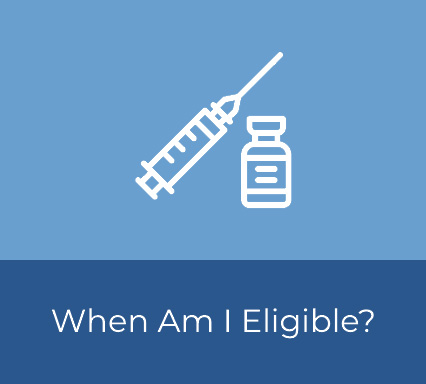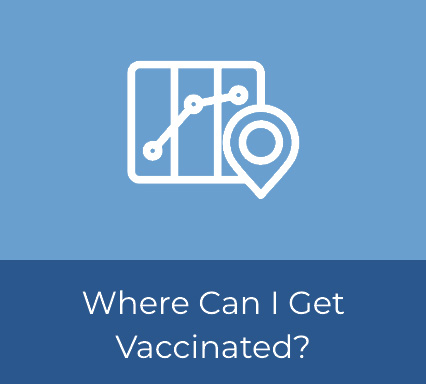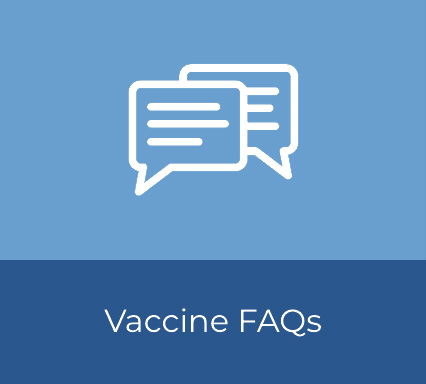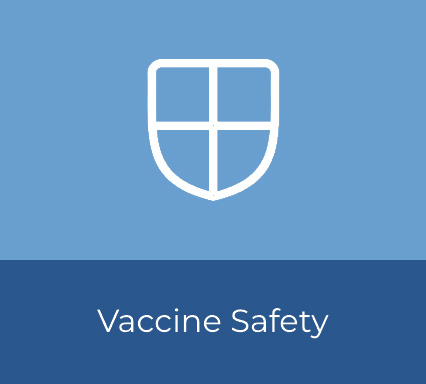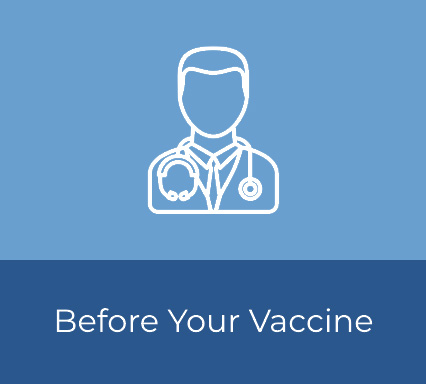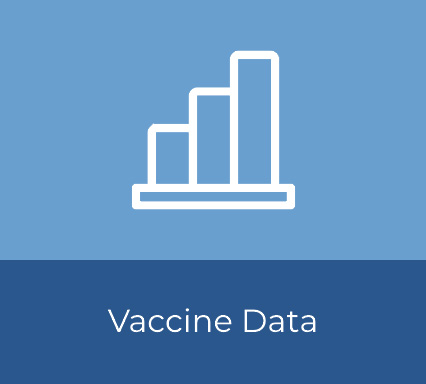
The PA Senate Democrats Present
Covid Vaccine
Information
All Pennsylvania adults are now eligible for COVID vaccine
Every adult in Pennsylvania will be eligible to receive the COVID 19 vaccination.
You can find providers on the COVID-19 Vaccine Provider Map here.
To date, Pennsylvania providers have administered more than 6 million vaccines and the state is ranked among the top 20 states for first-dose vaccinations. More than 2.4 million Pennsylvanians are fully vaccinated.
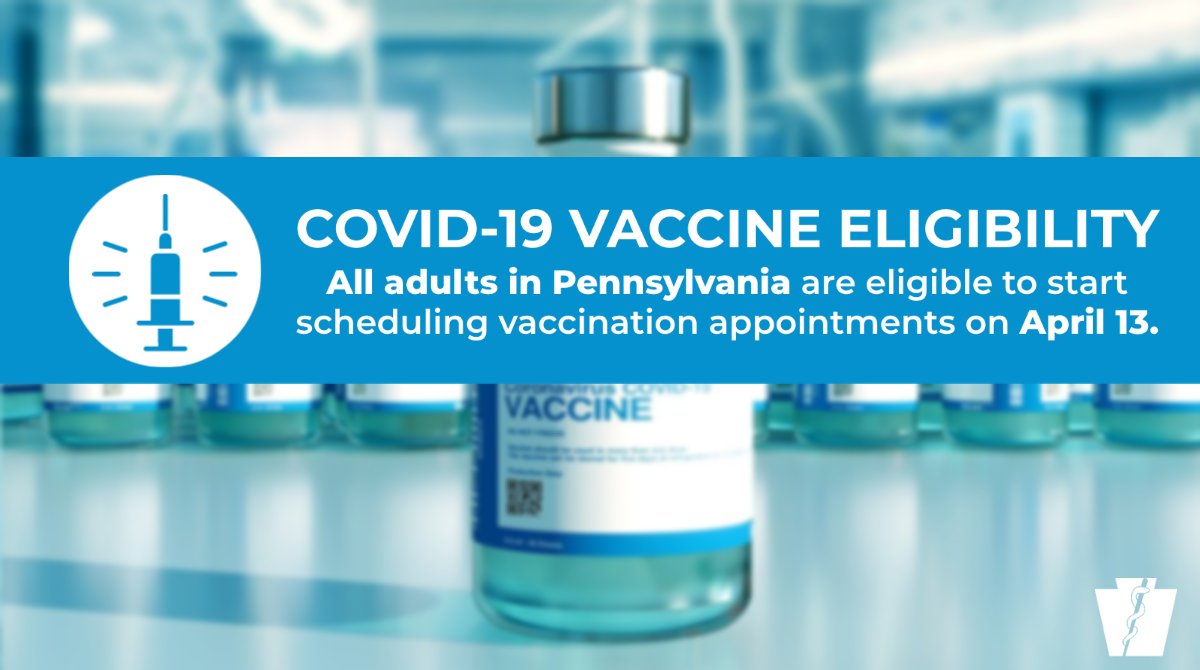
To keep Pennsylvanians informed about vaccination efforts:
- The Your Turn tool provides a way to register to be alerted when it’s your turn to be vaccinated.
- A commonwealth COVID-19 vaccination guide explains the current process for getting one. Pennsylvanians with questions about the vaccination process can call the Department of Health hotline at 1-877-724-3258.
- Vaccine provider map to find a COVID-19 vaccine provider near you.
- All of the locations that received vaccine and how much they have received can be found on the COVID-19 Vaccine Distribution webpage.
- Vaccine dashboard data can also be found on the website to find more information on the doses administered and showcase demographic information.
- The Unite Against COVID Weekly Update is a round-up of news you can use and answers to your most pressing vaccine questions – delivered directly to your inbox every week.
- Pennsylvanians can provide feedback on the Pennsylvania COVID-19 Interim Vaccination Plan by clicking on the Plan Feedback Form square under Popular Vaccine Topics here.
- Frequently asked questions can be found here.
We strongly urge everyone to get the vaccine as soon as they are able. There are many variants of the virus spreading now and the best way to protect yourself, your loved ones, and your whole community is by getting vaccinated. We can stop the spread and get back to “normal,” but that requires herd immunity to be achieved through mass vaccination.
Watch Past Events
MARCH 31 • 7 PM
Berks County
Hosted by Senator Judy Schwank
MARCH 30 • 6 PM
Southeast Pennsylvania
Hosted by Senator John Kane
JANUARY 25 • 12:30 PM
Northwest Pennsylvania
JANUARY 22 • 1:30 PM
Northeast Pennsylvania
Hosted by Senator John Blake
JANUARY 15 • 12 PM
Lehigh Valley
Hosted by Senator Lisa Boscola
JANUARY 6 • 11 AM
Philadelphia
Hosted by Senators Vincent Hughes, Christine Tartaglione, Sharif Street, Anthony Williams, Nikil Saval, and Art Haywood
JANUARY 6 • 3 PM
Southeast Pennsylvania Region
Hosted by Senator Carolyn Comitta, Senator Tim Kearney, and Senator Steve Santarsiero
MARCH 29 • 4 PM
Southeast Pennsylvania
Hosted by Senators Cappelletti & Collett
JANUARY 21 • 12 PM
Southwest Pennsylvania
Hosted by Senators Jay Costa and Lindsey Williams
JANUARY 20 • 12 PM
Southeast Pennsylvania
Hosted by Senators Katie Muth and John Kane
JANUARY 11 • 12:30 PM
Southwest Pennsylvania
Hosted by Senator Wayne Fontana
JANUARY 13 • 12 PM
Southeast Pennsylvania
Hosted by Senators Judy Schwank, Art Haywood, Amanda Cappelletti, and Maria Collett
COVID-19 Vaccine Information
Why should I get the COVID vaccine?
- It will be the combination of vaccination and continued mitigation measures such as mask wearing whenever outside your home, social distancing and avoiding large gatherings, and regular handwashing and sanitizing that will end this pandemic.
- Creating “herd immunity” to COVID-19 through the will slow the spread of this virus.
- Those who have already had COVID-19 may have some immunity to future infection, but that is not guaranteed, and it is not known how long it will last.
- Being infected with the virus itself can lead to prolonged health issues and even death.
- Vaccination is the safest way to create herd immunity and protect vulnerable populations who may not be able to get the vaccine themselves.
- It is believed based on research from other vaccines, that even those who do still get COVID-19 but have had the vaccine will have more mild symptoms then they would have had without the vaccine.
- This is an example of training the immune system to recognize and resist the virus.
- Stopping community spread is essential to ending this pandemic. Vaccines are essential to stopping community spread and ending the COVID-19 pandemic.
When will I get it?
- In Pennsylvania, distribution of the vaccine will be done in three phases due to the limited number of vaccines available throughout the country at this time.
- Phase 1A: health care personnel and residents of long-term care facilities (LTCFs)
- Within this phase, it is most critical that healthcare personnel with the most patient contact receive the vaccine first, especially those on COVID-19 specific treatment units.
- LTFCs that qualify as Skilled Nursing Facilities will also receive priority in this phase as their residents are the most medically vulnerable.
- Phase 1B: First Responders, Critical Workers, and those in Medically High-Risk Populations.
- Phase 2: Will begin when supply of vaccine allows, will focus on the subsections of Phase 1 who have not yet received a vaccine.
- Phase 3: When full supplies allow, all the general population will be encouraged to receive the vaccine.
- Phase 1A: health care personnel and residents of long-term care facilities (LTCFs)
- All COVID-19 vaccines will be voluntary. There are no federal or state mandates that say someone must get the COVID-19 vaccine.
- Some workplaces may require the COVID-19, just like some workplaces require their employees to get the flu shot.
How was it made so quickly?
- The timeline to develop a vaccine depends on the demand for the vaccine, the funding to research, and the ability to conduct large scale clinical trials to make sure the vaccine is safe.
- Development of a COVID-19 vaccine began in March, as soon as data was available on the virus.
- Previous vaccine research related to the H1N1 flu, and other coronaviruses such as SARS and MERS, allowed a head start on the COVID-19 vaccine because related research and development processes were already in place.
- There was also unprecedented world-wide cooperation among scientists and institutions in data and research sharing, allowing scientists to get faster answers to questions that might have taken years to discover if they had been working alone.
- Funding for vaccine research is also a barrier to development, but with COVID-19, governments and private institutions came together under umbrella’s like the U.S.’s “Operation Warp Speed” to ensure that funding for research and production would not be a barrier to getting a vaccine to people as soon as it was safe.
- All appropriate safety and ethics guidelines were followed in the clinical stages of approving the COVID-19 vaccines.
- Vaccine trials take place in three phases.
- The COVID-19 vaccine was able to go through these trial phases faster while still maintaining all safety and ethics protocols by utilizing all available data and the availability of large populations of diverse volunteers who participated in COVID-19 vaccine trials.
- All vaccines approved for distribution in the United States have been thoroughly assessed by the FDA and the CDC for distribution.
What is the COVID-19 Vaccine?
- The vaccine for COVID-19 allows our bodies to build immunity to this virus without contracting the virus.
- The COVID-19 vaccine does not contain the live COVID-19 virus, it contains either safe genetic material of the virus, harmless proteins of the virus, or a weakened version of a live virus similar to COVID-19, but not the actual virus.
- NO VACCINE CAN GIVE YOU THE VIRUS IT IS DESIGNED TO PROTECT YOU AGAINST.
- Many people get vaccines for things like the flu and think that the vaccine gave them the virus itself because they later got sick. This is not true.
- Viruses take a few days to travel through your body before you show symptoms of the virus, so you may have already been sick before you got the vaccine.
- Vaccines also can take a few days to become effective once they are in your body, so you can also still contract a virus a few days after you have gotten a vaccine because your body has not been able to build up enough immunity yet.
- Many of the COVID-19 vaccines will require TWO DOSES, a few weeks apart.
- Like a flu vaccine, there can be symptoms after you get the COVID-19 vaccine. These symptoms are mild and indicate the vaccine is working like it should to train your immune system.
- Symptoms of the COVID-19 Vaccine can include:
- injection site pain
- tiredness
- headache
- muscle pain
- chills
- joint pain
- fever
- injection site swelling
- injection site redness
- nausea
- feeling unwell
- swollen lymph nodes (lymphadenopathy)
- Symptoms from the vaccine will not happen to everyone, but if these symptoms worsen, or you think you are having an allergic reaction to the vaccine, contact your healthcare provider or emergency medical services immediately.
What is a vaccine?
- The first widely used vaccine, and the first vaccine to eradicate a disease, was the smallpox vaccine developed by British scientist Edward Jenner in 1796.
- By 1980, smallpox was the first disease to be eradicated by vaccine, and from 1980 to 2018 it is estimated that 150 to 200 million lives have been saved from a death by smallpox.
- When most people in a community are vaccinated against a disease, the ability of the pathogen to spread is limited. This is called ‘herd’ or ‘indirect’ or ‘population’ immunity. Creating herd immunity through vaccinations prevents infection of vulnerable populations who cannot be vaccinated such as babies and the immunocompromised.
- Vaccines are a safe and effective way to prevent death and stop the spread of infectious disease and have been doing so for decades.

